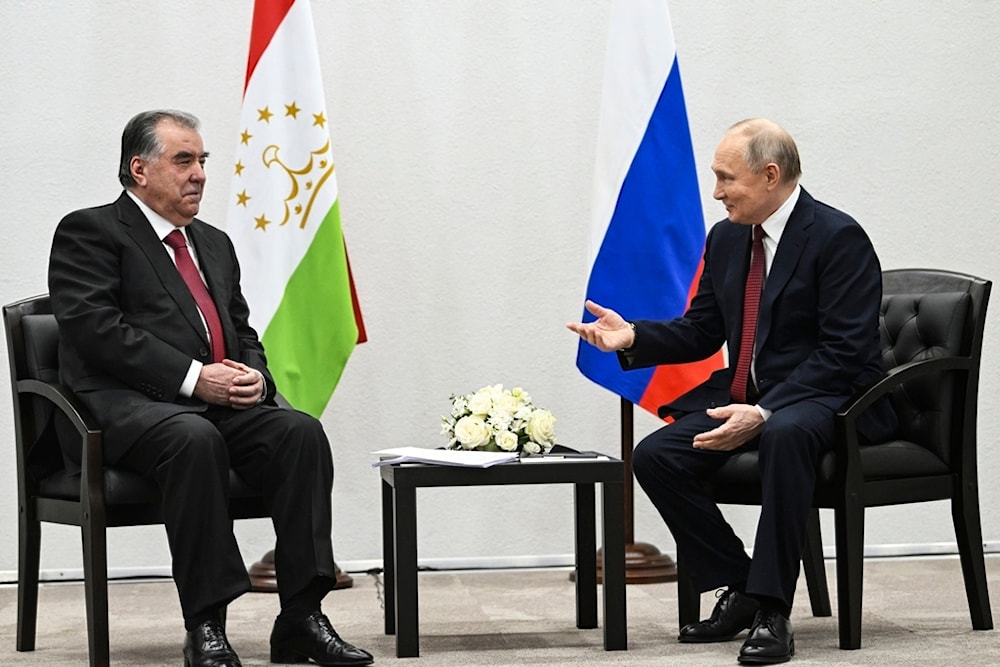Russia, Tajikistan discuss joint efforts to counter regional terrorism
The Russian and Tajik presidents discuss regional terrorism stemming from migration issues and ways to address them.
-

Russian President Vladimir Putin, right, gestures as he speaks to Tajik President Emomali Rahmon during their talks in Kazan the capital of the Republic of Tatarstan, Russia, Wednesday, February 21, 2024. (AP)
Russia and Tajikistan shared views on cooperation to combat regional terrorism and the issue of migration, the Kremlin reported on Friday.
Russian President Vladimir Putin and his Tajik counterpart President Emomali Rahmon had held a phone call earlier in the day to discuss joint participation in celebrations for the May 9 Victory in Moscow.
The Kremlin stated that both leaders discussed bilateral issues, including "cooperation in the fight against the terrorist threat, as well as in the migration area. In this context, it was agreed to improve the mechanisms of interaction between relevant ministries and departments."
Moreover, the presidents were reportedly confident in jointly thwarting recent efforts by certain groups to escalate tensions regarding labor migrants entering Russia, particularly from Tajikistan, reiterating belief that these efforts won't harm the longstanding brotherly relations between the two nations.
Dushanbe raised concerns last week regarding Tajik citizens facing entry denials in Russia. Maria Zakharova, spokesperson for the Russian Foreign Ministry, stated that Russia was actively addressing the challenges, aiming for swift resolution. She clarified that the heightened security measures at checkpoints were temporary and unrelated to the nationality of incoming individuals.
A target of terrorist attacks
Russia has seen a series of terrorist attacks or attempts recently, prompting increased security along its borders.
On April 2, the Russian Federal Security Service (FSB) revealed the interception of a smuggling plot of explosives from Ukraine through NATO and EU member states.
In more detail, the FSB had been carrying inspections at the crossing between Russia and Latvia, when bomb materials were discovered in a shipment disguised as Orthodox and church icons. The cargo included four improvised explosive devices, 10 kilograms of high-yield industrial plastic explosives, 91 electronic detonators, and parts of an RPG-7 charge.
Only a few days prior, Russian officials said they had arrested three people plotting an attack in the country's south, a week after the assault on a Moscow concert hall killed at least 144 people.
The FSB security agency said it had "put an end to the terrorist activities of three nationals from a Central Asian country", Russian news agencies reported.
The RIA Novosti news agency said the ingredients for an improvised explosive device (IED) and chemical substances had been found at the home of one of the suspects.

 3 Min Read
3 Min Read








